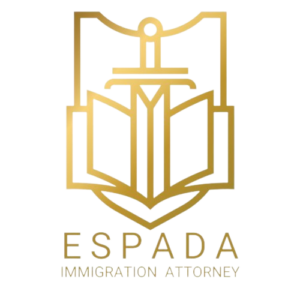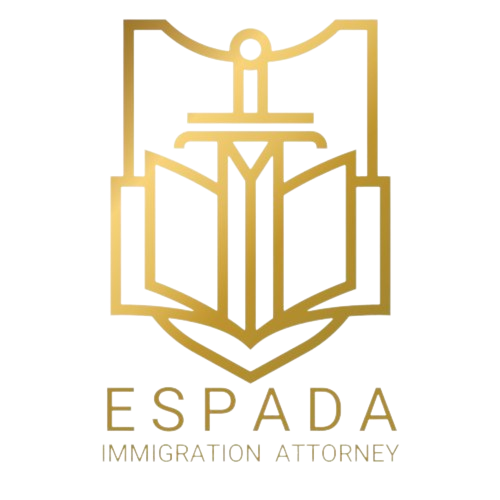National Interest Waiver: A Comprehensive Guide to the NIW

The National Interest Waiver (NIW) offers a significant opportunity for highly qualified individuals to obtain a U.S. green card through self-petition. With an approved NIW, individuals can secure a green card without needing a job offer from a U.S. employer.
This guide will provide a detailed explanation of what the National Interest Waiver entails. If you have any questions or need assistance, feel free to email me directly at abbas@espadaimmigration.com. I respond promptly to emails and would be happy to assist you.
Overview
- Introduction to the National Interest Waiver
- Benefits of a National Interest Waiver
- National Interest Waiver Requirements
- Required Documents to Apply for a National Interest Waiver
- National Interest Waiver Process
- National Interest Waiver Fees
- National Interest Waiver Processing Time
- Conclusion
1. Introduction to the National Interest Waiver
The process of obtaining an employer-sponsored green card in the United States can often be lengthy and challenging. Typically, a U.S. employer must demonstrate that they made efforts to hire a U.S. worker but were unsuccessful. This involves advertising positions, conducting interviews, and obtaining approval from the U.S. Department of Labor to hire a foreign worker. The entire process can become complex, time-consuming, and expensive, leading many employers to be hesitant about sponsoring foreign workers for green cards.
However, there are alternative options for obtaining a green card without the need for employer sponsorship. One such option is the National Interest Waiver (NIW). This program allows individuals with exceptional skills and qualifications in fields such as science, arts, business, and certain other professions to self-petition for a green card.
The National Interest Waiver, part of the EB-2 immigrant category, waives the requirement for a job offer and employer sponsorship, providing a path for eligible individuals to apply for a green card without needing a U.S. employer’s involvement.
2. Benefits of the National Interest Waiver
Self-Petitioning Option
A key benefit of the EB-2 National Interest Waiver is the ability to self-petition for a green card. Unlike traditional employer-sponsored green cards, the National Interest Waiver eliminates the need for a U.S. employer to sponsor your petition. This means you can bypass the challenging task of securing a job offer from a sponsoring employer. Additionally, you avoid the labor certification process entirely, which can often be a significant hurdle.
Speed of Processing
Another major advantage of the National Interest Waiver is the expedited processing timeline. The traditional employer-sponsored green card process can take a considerable amount of time, primarily due to the employer’s recruitment efforts and the labor certification requirement. Obtaining labor certification approval from the Department of Labor alone can take several months. In contrast, the EB-2 National Interest Waiver bypasses this step, allowing you to file your immigrant petition directly, which significantly shortens the overall processing time.
3. National Interest Waiver Requirements
There are four main criteria you must meet to qualify for the EB-2 National Interest Waiver:
- You must qualify under the EB-2 immigrant category.
- Your proposed endeavor in the U.S. must have substantial merit and national importance.
- You must be well positioned to advance your proposed endeavor.
- You must demonstrate that it would be beneficial to the United States to waive the job offer requirement and the labor certification process.
1. Qualifying Under the EB-2 Immigrant Category
The National Interest Waiver is a provision available only under the EB-2 immigrant category, which has its own set of eligibility requirements. To qualify for the NIW, you must first meet the criteria for EB-2 eligibility. There are two primary ways to qualify for EB-2:
Advanced Degree Professional
To qualify under the EB-2 category as an advanced degree professional, your intended field of work must require an advanced degree. You must either possess an advanced degree (such as a master’s or doctoral degree) or hold a bachelor’s degree with at least five years of progressive work experience in the relevant field.
Exceptional Ability
Alternatively, you may qualify based on exceptional ability in your field. To demonstrate exceptional ability, you must meet at least three of the following criteria:
- At least 10 years of full-time experience in your profession.
- A degree in your field.
- A license to practice in your profession.
- Membership in professional organizations.
- A salary or remuneration that reflects exceptional ability.
- Recognition for significant contributions or achievements from peers, professional organizations, or government entities.
2. Substantial Merit and National Importance of the Proposed Endeavor
To be eligible for the National Interest Waiver, you must show that your proposed work in the U.S. has substantial merit and national importance.
Substantial Merit
Substantial merit means that your work is valuable to the national interest of the United States. You should provide evidence demonstrating that your work will have a significant positive impact in your field. For example, if you are a specialist in pediatric orthopedic surgery, it is important to frame your proposed endeavor specifically as pediatric orthopedic surgery rather than more broadly as “medicine” or “surgery.”
Substantial merit can be demonstrated in various industries such as science, technology, business, culture, health, and education.
National Importance
When determining national importance, USCIS evaluates the potential scope of your work. Key factors include:
- Does your endeavor have national or even global implications in your field?
- Will your work create job opportunities for U.S. workers or have other substantial economic benefits?
It’s important to note that USCIS is not focused on the geographic scope of your impact. Even if your work has a more localized or regional effect, it may still qualify for the EB-2 National Interest Waiver if it holds broader national importance.
3. Being Well Positioned to Advance the Proposed Endeavor
To qualify for the National Interest Waiver, you must demonstrate that you are well positioned to advance your proposed endeavor. This means showing your ability to make meaningful contributions to your field, based on your education, skills, experience, and track record.
USCIS considers several factors to assess whether you meet this requirement:
- Your education and professional credentials.
- Your relevant skills and knowledge.
- Your past success in similar endeavors.
- A well-developed plan or model for future activities.
- Any progress you have already made toward achieving your goals.
- Interest from potential collaborators, clients, or investors.
It’s not necessary to show that success is guaranteed, but you must demonstrate that you are qualified and well-prepared to achieve your goals successfully.
4. Demonstrating the Benefits of Waiving Job Offer and Labor Certification Requirements
When evaluating whether you meet the criteria to have the job offer and labor certification requirements waived, USCIS considers the following factors:
- Whether it would be difficult for you to secure a job offer.
- Whether it would be difficult for your potential employer to obtain a labor certification.
- Whether, even with qualified U.S. workers available, your contributions would still benefit the U.S.
- Whether the national interest in your contributions is urgent enough to justify bypassing the labor certification process.
All these factors are considered together to determine whether it would be beneficial to waive the job offer and labor certification requirements.
5. Documents Required for National Interest Waiver Application
The required documents for a national interest waiver application will depend on your specific circumstances. It’s essential to consult with an experienced immigration attorney before deciding what documents to include.
Here is a general list of documents that may be necessary:
- Copies of your educational degrees
- Evidence of exceptional ability (if applicable)
- Curriculum Vitae (CV)
- Citation reports
- A link to your Google Scholar profile
- Publications, articles, or books you have authored
- Evidence of awards or honors you have received
- Documentation showing you have reviewed the work of others
- Published materials about you or your field
- Evidence of grants or patents you have received
- Copy of the biographical page of your passport
- Expert testimonials from professionals in your field
6. National Interest Waiver Process
Step 1: Consult with an Immigration Lawyer
The first step in the national interest waiver (NIW) process is to consult with an experienced immigration lawyer. There are several reasons why this is crucial:
- An experienced immigration lawyer can review your qualifications and provide an assessment of your likelihood of approval.
- A lawyer can examine your immigration background to determine if there may be a better pathway for obtaining your green card.
- The NIW application process can be complicated, and every case requires a detailed strategy to demonstrate that you meet all the necessary requirements. A skilled immigration attorney will help you craft a successful strategy for your EB-2 national interest waiver petition.
Step 2: Submit Form I-140 to USCIS
Form I-140, the Immigrant Petition for Alien Worker, is the initial form required to apply for a green card under the EB-2 NIW category.
Along with the Form I-140, your immigration attorney will prepare a comprehensive cover letter that outlines your case and eligibility for a national interest waiver. All supporting documents proving your eligibility will also be included with the Form I-140.
Step 3: Adjustment of Status or Immigrant Visa Processing
After your Form I-140 is approved and a visa number is available, the next step will be to either apply for an adjustment of status or undergo immigrant visa processing. Here’s a breakdown of these options:
-
Adjustment of Status
- This is the process of changing from a non-immigrant status to lawful permanent resident status while remaining in the United States.
- To apply, you must be lawfully present in the U.S. in a valid non-immigrant status.
- The adjustment of status application is made by filing Form I-485 with USCIS.
- This process takes place within the U.S. and does not require leaving the country.
- If your priority date is current when you file Form I-140, you may be able to file Form I-485 concurrently.
-
Immigrant Visa Processing
- Immigrant visa processing is when you apply for a visa at a U.S. consulate or embassy abroad.
- This option is typically used when you are not in lawful status in the U.S.
- The immigrant visa process involves submitting Form DS-260 to the Department of State.
- As part of this process, you will need to attend an interview at a U.S. consulate abroad.
- Once the interview is successful, you will receive your immigrant visa and can enter the U.S.
- Upon entering the U.S. with your immigrant visa, you will officially become a lawful permanent resident.
7. National Interest Waiver Fees
Below are the USCIS filing fees associated with each stage of the EB-2 NIW process:
- Form I-140 Filing Fee: $700
- Form I-485 Filing Fee (Adjustment of Status): $1,225
- Premium Processing Fee (Optional): $1,410
8. National Interest Waiver Processing Time
The total processing time for obtaining a green card through EB-2 NIW can vary depending on several factors. The following outlines the estimated processing times for different situations.
Concurrent Filing of Form I-140 and Form I-485 (Adjustment of Status)
If you are legally present in the U.S. under a valid non-immigrant status and a visa number is available, you may qualify to file Form I-140 and Form I-485 simultaneously. In such cases, you can expect to receive your work authorization (EAD) and travel permission (advance parole) within approximately six months. Your green card should arrive within 8 to 9 months.
Immigrant Visa Processing with Current Priority Date
For individuals who are not lawfully present in the U.S. and will undergo immigrant visa processing, the first step is filing Form I-140 with USCIS. Once the I-140 is approved (usually within 7 to 8 months), you can proceed with immigrant visa processing if a visa number is available. Immigrant visa processing typically takes an additional 7 to 9 months, bringing the total processing time to approximately 14 to 17 months.
Priority Date Note – Visa Backlog
For applicants from countries such as India and China, there is significant demand for visas under the EB-2 category, often exceeding the available supply. This leads to visa retrogression (backlogs) for these countries. As a result, applicants born in countries with a visa backlog must wait for their priority date to become current before proceeding with immigrant visa processing or adjustment of status. If this applies to you, the total time to obtain a green card can extend for several years.
9. Conclusion
The EB-2 National Interest Waiver offers an excellent pathway to secure lawful permanent residence (a green card) in the United States, without requiring a job offer. Through this process, you can self-petition for your green card and also include your spouse and unmarried children under 21 years of age in your application.
However, the EB-2 NIW process requires meeting rigorous standards to achieve approval. Therefore, it is crucial to collaborate with an experienced attorney who can guide you through the preparation and filing of your EB-2 NIW application.
If you have any questions regarding the EB-2 NIW, feel free to contact me directly at abbas@espadaimmigration.com. As an experienced U.S. immigration lawyer, I would be happy to assist you.
Resources:
- Matter of Dhanasar – Precedent EB2 NIW Case
- Visa Bulletin
- Employment-Based Immigration: Second Preference EB-2
- Business Immigration: Law & Practice, 2nd Ed.– Vol. 2: Chapter 3
Why Choose Us
Choosing the right immigration lawyer can make all the difference in achieving your U.S. immigration goals. At Espada Immigration Lawyer, we are dedicated to providing exceptional legal guidance and personalized support through every step of the process. Our team combines specialized expertise, transparency, and an unwavering commitment to client success, making us a trusted partner for all your immigration needs.
- Specialized Expertise
- Personalized Approach
- Transparent Guidance
- Client-Centered Commitment

DISCLAIMER: This article is provided for general informational purposes only and does not constitute legal advice. The information herein should not be interpreted as formal legal counsel nor does it establish an attorney-client relationship. This article is neither intended as a solicitation for legal services nor as a substitute for individual legal advice. For specific legal guidance, please consult an attorney in your jurisdiction. Actions based on information in this article are taken at your own risk, and I disclaim any liability for such actions. Please note that information may have changed since publication and may no longer be current. This article does not offer guarantees, warranties, or predictions regarding the outcome of any legal matters. Each case is unique, and results will depend on individual facts and legal issues. Thank you.
ATTORNEY ADVERTISING: Any invitation to contact our law firm on this website and related pages constitutes attorney advertising.
